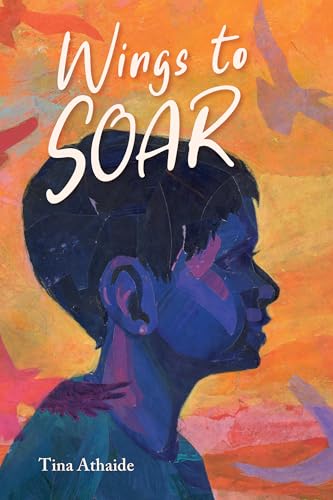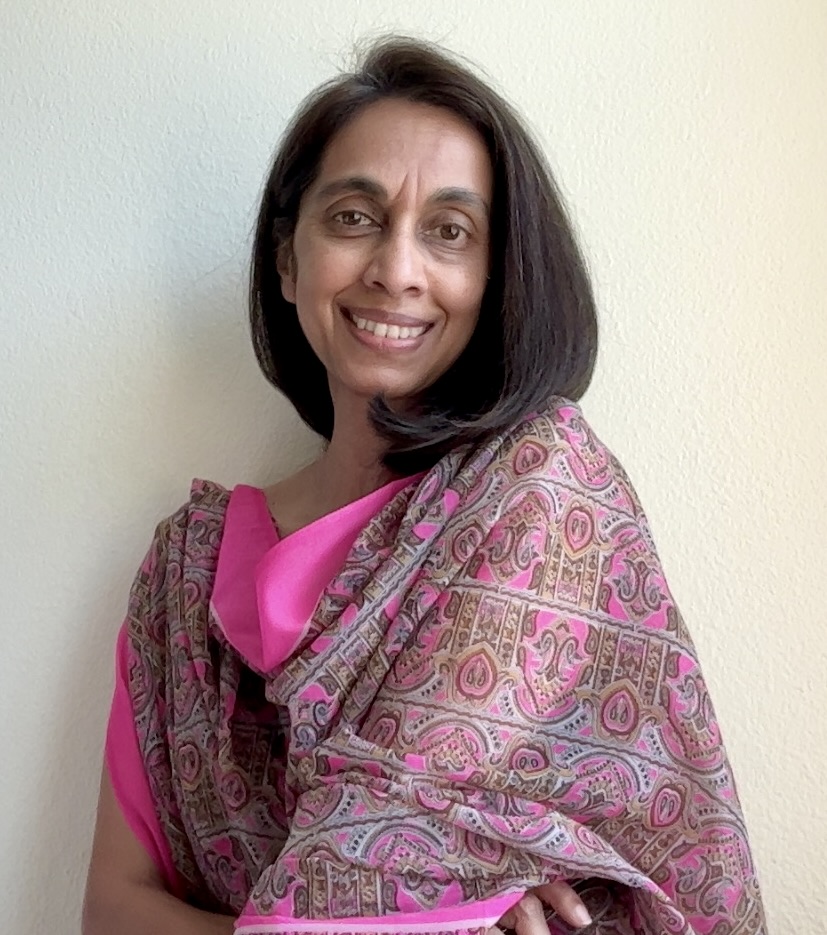Published August 18th, 2025
Review
by Joyce Bou Charaa
As a children’s book author, Tina Athaide, born in Uganda, expands her stories by diving into history to reach a new audience and capture touching moments that many can relate to. In her latest book, Wings to Soar (2024, Charlesbridge Moves), Athaide showcases a global tragedy that different societies have had to endure throughout history, and some are still struggling with today: forced migration.
In Wings to Soar, the author relies on her own experience as a former Ugandan refugee, who was expelled to the United Kingdom back in 1972, when President Idi Amin ordered the Indian minority in Uganda to leave immediately. Tina Athaide was just 4 years old when she fled to London with her family. The same happens to the main character Viva, a 10-year-old Indian girl from Uganda, who is also forced to leave home with her mother and sister to a resettlement camp in England, when anti-immigration movements start to rise against Ugandan refugees. Viva has to step up and surpass each difficult situation coming her way in the most fearless manner.
“Viva’s supremeness is very much her own, but her story mirrors some of my own personal experiences.” (p. 446, author's note)
Athaide reimagines what it would be like for a child refugee to live away from her home country, her warm house, and face hatred and racism from strangers for reasons beyond her control. This book is Viva’s story and her journey in regaining her unique identity while facing brutal discrimination and life’s hardships.

Wings to Soar is a book in verse that is narrated through Viva’s point of view. She tells her life experience of living with her mother and sister in RAF Greenham, England, where she feels isolated in a camp where strangers look at her with hate and disrespect. Inside this refugee camp, Viva reflects on her broken self, how she is forced to live in a strange land, unwanted by many, but loved by a few. She discovers solace in a library inside the common hall made for Indian refugees to hang out. There, Viva finds a little dictionary and some good friends her age whom she can have fun with.
In the far corner,
Is the library.
Books
Magazines
Newspapers.
And, hopefully, an Oxford Dictionary.
(p. 31)
Viva’s love for language is one of the main aspects of her personality that is vividly portrayed in the book. For example, when Viva arrives at the camp, she hears people calling her by the name “refugee,” so she goes on searching for its meaning in the dictionary that she found at the library and always keeps with her. Viva describes this word by saying:
Each syllable
feels like raw mango
on my tongue.
(p. 39)
Being labeled a “refugee” is a painful experience for Viva, who struggles to maintain a sense of identity in the face of racism and isolation. She wants to be called by her own name instead, Viva, which means “alive, spirited, living life.” (p. 20) These words shape her strong and undefeated personality. Viva only wants to spread her wings and soar, even in darkness, in the resettlement camp that she’s locked in.
In an interview with Uma Krishnaswami on her blog, Tina Athaide further expands upon Viva’s personality. She says: “[Viva’s] connection to dictionaries mirror my own, reflecting a love for the richness of language and the comfort and empowerment that come from understanding and owning words.” And, through this characteristic, Athaide wants to encourage children to “explore and enjoy words as tools for expression and creativity.”

Along with books and dictionaries, Viva is a devoted listener to Diana Ross’s music. Viva’s love for the American singer is mainly because her songs, like “Ain’t No Mountain High Enough,” remind her of home, the good days when she was living happily surrounded by her friends and family, where there’s no hate but only love and goodness.
Words, language, and lyrics are Viva’s companions that help her overcome all difficulties she’s going through. Racism is one of the most challenging issues that Viva, along with her mother and sister, Anna, have to face during their stay in the RAF camp in 1972, when all newspaper headlines are titled “No More Asians!” in large letters. Viva’s reaction in her story is purely authentic for her age, expressing herself in simple words:
Those angry faces
from the newspaper
haunt my dreams
and shout in my head.
(p. 114)
Whenever Viva, her mother, or her sister want to go out someplace, three boys follow them in the streets, shouting: “Run Pakis, Run Back Home!” Viva’s character in the story is strong, courageous, and always looking to spread her wings, as her friend Leroy used to tell her: “Face life’s storms, Viva. Be strong. Be courageous. Soar!” These powerful words follow Viva throughout her journey in finding her father, who's been missing and out of touch. Viva's fear of losing her father is overwhelming, especially with everything else going on in her life. The thought of being separated from him forever is unbearable, given the crucial role he played in supporting her family before. However, she never gives up. Leroy’s words keep ringing in her head, telling her to resist and go forward. Viva is touched and inspired by words, and through them she finds strength to survive and look forward with hope and persistence.
“I look at my wings.
I’m not going to just
HOPE
to find Daddy.
I am going to
make it happen.”
(p. 249)
“I am going to soar
on my wings
and find him.”
(p. 249)
Through Viva’s insightful narration from her own personal perspective, readers have access to her thoughts on the happenings around her. It’s Viva’s own story, narrating the way she sees moments and places: the refugee camp, the school, the newspaper headlines, and all the emotions of desperation and sadness, but also the courage and strength that she holds onto to overcome obstacles, bringing her back to life after each fall. Viva is a fictional representation of young refugees searching for light amid the catastrophic state of living that they were forced into. Here, Viva is their voice, written in verse, of her story of bravery that they can help them find the strength they need for emotional survival.
Blending history with personal experience, Tina Athaide’s storytelling is truly captivating and attractive for young readers. Viva is a solid character who embodies struggles and triumphs that readers can easily root for, as her journey is both heart-wrenching and inspiring. Wings to Soar shares a thought-provoking journey of displacement and resilience through Viva’s immigrant experience, where readers are invited to reflect on the themes of loss, identity, and the search for a new life away from home, which add depth and resonance to the story.
Nationality: Lebanese
First Language(s): Arabic
Second Language(s):
English,
French
Listen to "Surviving Life Away from Home — A Review of “Wings to Soar” by Tina Athaide".
Supported by:

